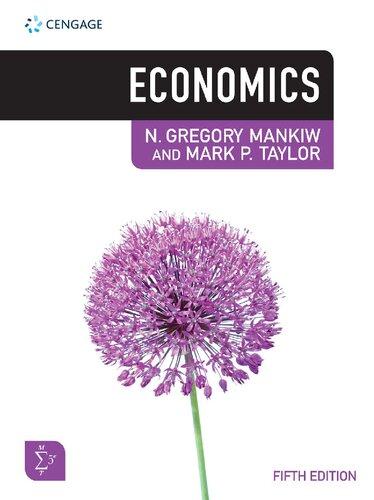Question
1) If the United States and China entered into a free trade agreement, abolishing all tariffs and quotas, who would benefit and who would lose
1) If the United States and China entered into a free trade agreement, abolishing all tariffs and quotas, who would benefit and who would lose in the United States?
a) Consumers of Chinese imports would lose, American workers competing against Chinese goods would win.
b) Consumers of Chinese imports and American workers competing against Chinese goods would both lose.
c) Consumers of Chinese imports would win, American workers competing against Chinese goods would lose.
d) Consumers of Chinese imports and American workers competing against Chinese goods would both win.
2) If the United States were to export more of its supply of natural gas, what would happen to the price of natural gas in the United States?
a) The price of natural gas would not change in the United States.
b) The price of natural gas would fall in the United States.
c) The price of natural gas would rise in the United States.
d) The price of natural gas would fluctuate in an unpredictable pattern.
3) Suppose Japan and South Korea can both produce the same amount of cars per worker, but Japan can produce more satellite dishes per worker. Does South Korea have a comparative advantage in either good?
a) No, because it cannot produce either good more efficiently than Japan.
b) Yes, South Korea would have a comparative advantage in producing cars.
c) Yes, South Korea would have a comparative advantage in producing satellite dishes.
d) There is not enough information to determine whether South Korea has a comparative advantage.
4) If a Canadian lumber company can produce more plywood per worker than an American lumber company, should the United States be an exporter of plywood?
a) No, because the Canadians can produce plywood for cheaper.
b) No, because the Canadians have a comparative advantage in producing plywood.
c) Yes, the United States should export plywood if the opportunity cost is lower than producing another good.
d) Yes, the United States could export plywood even without having a comparative advantage in producing it.
Step by Step Solution
There are 3 Steps involved in it
Step: 1

Get Instant Access with AI-Powered Solutions
See step-by-step solutions with expert insights and AI powered tools for academic success
Step: 2

Step: 3

Ace Your Homework with AI
Get the answers you need in no time with our AI-driven, step-by-step assistance
Get Started



